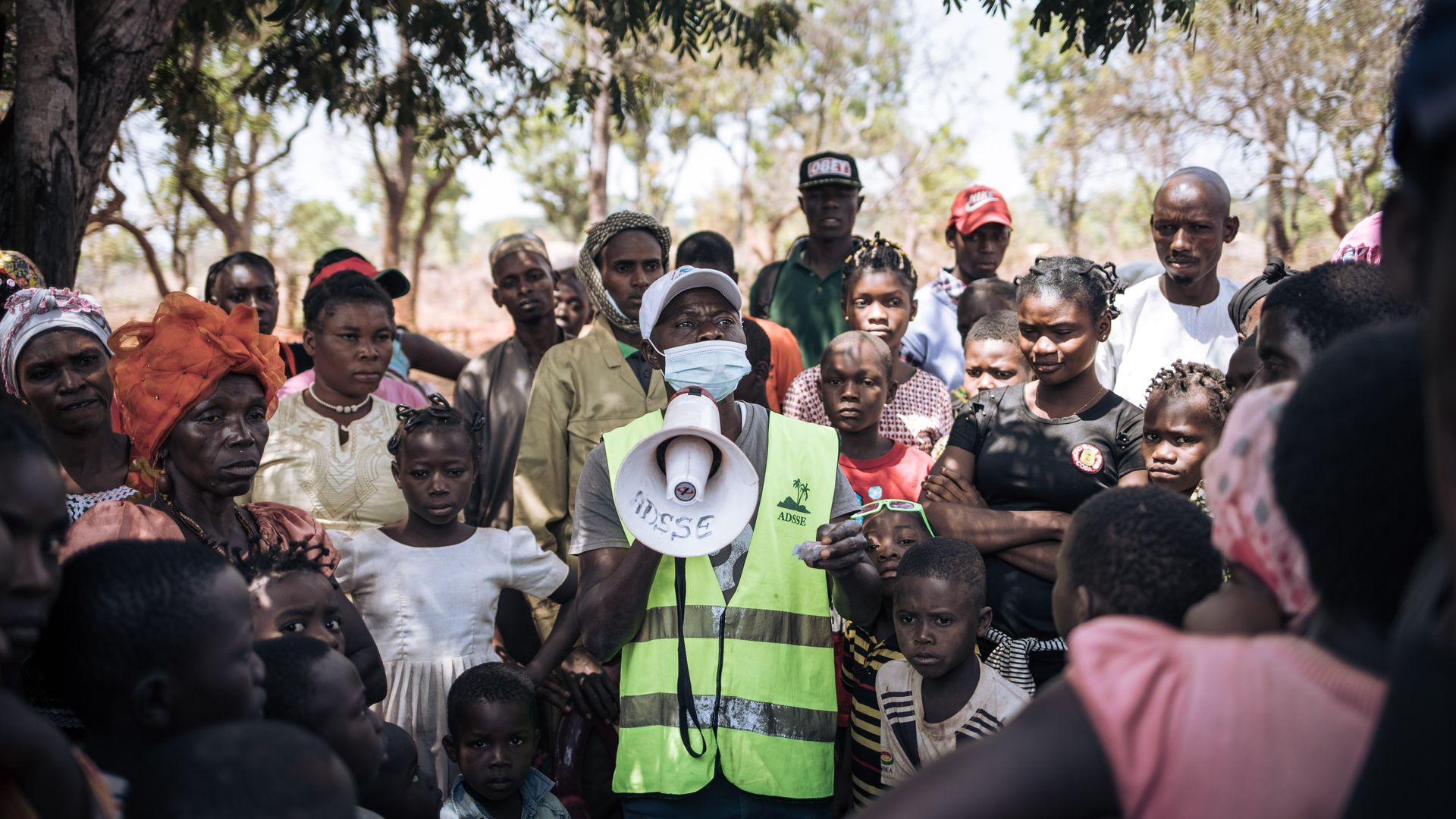Central African Republic faces hunger crisis as rebels seize highway
Add Axios as your preferred source to
see more of our stories on Google.

Registering refugees from CAR in the Democratic Republic of the Congo. Photo: Alexis Huguet/AFP via Getty
The Central African Republic is facing severe food shortages after a rebel group took control of the highway from Cameroon over which flows nearly the entire food supply to the capital, Bangui.
The state of play: The rebels support former President François Bozizé, who was ousted in a coup in 2013 and barred from running in the Dec. 27 presidential elections because he faced charges for murder and other crimes.
- By the time that election was won by the incumbent, Faustin-Archange Touadéra, the rebels had already launched their campaign to oust him.
- They’ve now taken control of several cities and attempted to take Bangui, which is defended by a combination of UN peacekeepers, reinforcements from Rwanda and Russian mercenaries.
- The UN estimates that more than 100,000 people have been displaced by the fighting, 84,000 of them to neighboring countries.
On the ground: “Basic goods like fruit, vegetables, oil and sugar are getting harder to find, and prices are rising. Another month of this and the city will actually run out of food,” Moussa Abdoulaye writes for the Continent from Bangui.
- “It is hard to predict what will happen next. The government does not have the firepower to win this war militarily. It will have to negotiate. And the rebels have made their position clear: they want to scrap the results of the election, be part of a transitional government, initiate a national dialogue and create a new constitution leading to new elections.”
The big picture: The Central African Republic is one of the world's poorest countries, and the government's authority barely stretches beyond the capital city. Hopes of greater stability after a 2019 deal between the government and rebel groups have now been dashed.
- “Central African Republic has been on life support for a very long time, so it’s very easy, sadly, to push it into such a dire state where its ability to feed its people is under threat,” says Judd Devermont, director of the Africa Program at the Center for Strategic and International Studies.
